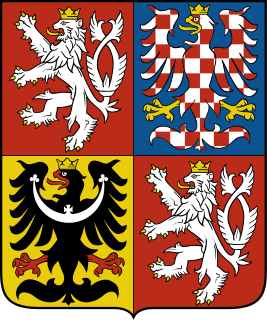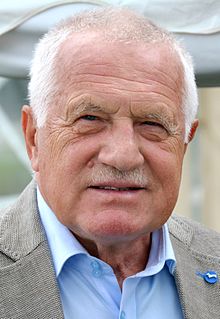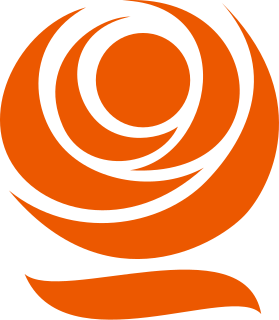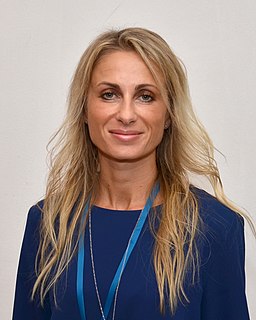
The Czech Republic, also known by its short-form name, Czechia, is a country in Central Europe bordered by Germany to the west, Austria to the south, Slovakia to the east, and Poland to the northeast. The Czech Republic is a landlocked country with a hilly landscape that covers an area of 78,866 square kilometers (30,450 sq mi) with a mostly temperate continental climate and oceanic climate. It is a unitary parliamentary republic, with 10.6 million inhabitants. Its capital and largest city is Prague, with 1.3 million residents; other major cities are Brno, Ostrava, Olomouc and Pilsen.

Czechoslovakia, or Czecho-Slovakia, was a sovereign state in Central Europe that existed from October 1918, when it declared its independence from the Austro-Hungarian Empire, until its peaceful dissolution into the Czech Republic and Slovakia on 1 January 1993.

The Czech Republic is a unitary parliamentary constitutional republic, in which the President is the head of state and the Prime Minister is the head of government. Executive power is exercised by the Government of the Czech Republic which reports to the lower house of Parliament. The Legislature is bicameral, with the Chamber of Deputies consisting of 200 members and the Senate (Senát) consisting of 81 members. Both houses together make up the Parliament of the Czech Republic.

Václav Klaus is a Czech economist and politician who served as the second President of the Czech Republic from 2003 to 2013. From July 1992 until the dissolution of Czechoslovakia in January 1993 he served as the second and last Prime Minister of the Czech Republic while it was a federal subject of the Czech and Slovak Federative Republic, and then as the first Prime Minister of the newly-independent Czech Republic from 1993 to 1998.

The Communist Party of Bohemia and Moravia is a communist party in the Czech Republic. It has a membership of 42,994 (2016) and is a member party of the European United Left–Nordic Green Left bloc in the European Parliament.

The Czech Social Democratic Party is a social-democratic political party in the Czech Republic. It holds 15 seats in the Chamber of Deputies following the 2017 legislative election in which the party lost 35 seats. The party has been led by Jan Hamáček since 2018. It has been a junior coalition party within a minority cabinet since June 2018, and was a senior coalition party from 1998 to 2006 and from 2013 to 2017.

KDU-ČSL, often shortened to lidovci is a Christian-democratic political party in the Czech Republic. The party has taken part in almost every Czech Government since 1990. In the June 2006 election, the party won 7.2% of the vote and 13 out of 200 seats; but in the 2010 election, this dropped to 4.4% and they lost all their seats. The party regained its parliamentary standing in the 2013 legislative election, winning 14 seats in the new parliament, thereby becoming the first party ever to return to the Chamber of Deputies after dropping out.

The Civic Democratic Party is a liberal-conservative eurosceptic political party in the Czech Republic. It holds 25 seats in the Chamber of Deputies, and is the second strongest party following the 2017 election.

Czech National Social Party is a civic nationalist political party established in 1898 within the Young Czech Party as a nominally socialist group with a stress on achieving Czech independence from Austria–Hungary. Its best-known member was Edvard Beneš, a co-founder of Czechoslovakia and the country's second President.
This article gives an overview of liberalism in the Czech lands. It is limited to liberal parties with substantial support, mainly proved by having had a representation in parliament. The sign ⇒ denotes another party in that scheme. For inclusion in this scheme it is not necessary that parties label themselves as a liberal party.

German Bohemians, later known as the Sudeten Germans, were ethnic Germans living in the lands of the Bohemian Crown, which later became an integral part of the state of Czechoslovakia. Before 1945, Czechoslovakia was inhabited by over three million such German Bohemians, comprising about 23 percent of the population of the whole republic and about 29.5 percent of the population of Bohemia and Moravia. Ethnic Germans migrated into the Kingdom of Bohemia, an electoral territory of the Holy Roman Empire, from the 11th century, mostly in the border regions of what would later be called the "Sudetenland", named after the Sudeten Mountains. This process of German expansion was known as Ostsiedlung. The name "Sudeten Germans" was adopted amidst rising nationalism in the aftermath of the fall of the Austro-Hungarian monarchy, which was a consequence of the First World War. After 1945, most ethnic Germans were expelled from Czechoslovakia to Germany and Austria.

The Green Party is a green political party in the Czech Republic.

The First Czechoslovak Republic, often colloquially referred to as the First Republic, was the first Czechoslovak state that existed from 1918 to 1938, dominated by ethnic Czechs and Slovaks, the country was commonly called Czechoslovakia, a compound of Czech and Slovak; which gradually became the most widely used name for its successor states. It was composed of the territories of Austria-Hungary, having different system of administration of the former respective Austrian and Hungarian territories.

The European Parliament election of 2009 in Czech Republic was the election of the delegation from Czech Republic to the European Parliament in 2009. The Civic Democratic Party has won the election with a surprisingly strong lead against the Czech Social Democratic Party. Communist Party of Bohemia and Moravia came third and the Christian and Democratic Union – Czechoslovak People's Party became the last party to enter the Parliament.

The Czech Pirate Party or Pirates is a liberal political party in the Czech Republic, founded in 2009. Following the 2017 legislative election, it is the third largest party in the Chamber of Deputies, with 22 out of 200 seats. The parliamentary party sits in opposition to the ruling cabinet and party leader Ivan Bartoš serves as the chairman of the Committee on Public Administration and Regional Development. The party is represented by three Members of the Senate of the Czech Republic, the most recently elected being Lukáš Wagenknecht in 2018. That same year, the party entered a number of municipal assemblies and formed a governing coalition in the Prague City Assembly, with Zdeněk Hřib becoming the Mayor of Prague. In the 2019 European election, the party gained three MEPs, joined the Greens–European Free Alliance parliamentary group and campaign leader Marcel Kolaja was elected Vice-President of the European Parliament.

.

ANO 2011 is a populist political party in the Czech Republic. The party was founded by Andrej Babiš, the second-richest person in the Czech Republic, owner of the Agrofert conglomerate, and Mafra media group, and the current Prime Minister of the Czech Republic. It is based on the former movement Action of Dissatisfied Citizens. "Ano" means "yes" in Czech.

The 2019 European Parliament election in the Czech Republic was held on 24 and 25 May 2019, electing the 21 members of the Czech delegation to the European Parliament as part of the European elections held across the European Union.














